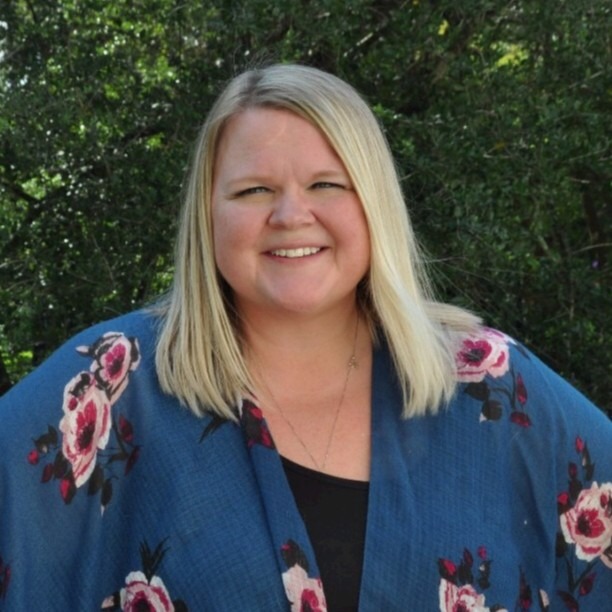This column has looked at FDA Warning Letters as “must reads” (4/24/2018) and unbelievable reads (6/5/2019), yet a recent FDA Warning Letter to Advanced Botanical Consulting & Testing Inc. (ABC Testing) serves to combine all and perhaps trump all of the remarkable aspects of previous letters from our highest governmental agency tasked to ensure safety from the food and drug industries. While some FDA Warning Letters serve as instruction on how to improve, this letter leaves as many questions as answers, and in this article, we’ll try to deal with this concern head-on, and again to call to action the powers we collectively possess to make our dietary supplement industry all we imagine it should be.
It should be noted and perhaps emphasized that while ABC’s current violation stems from its work outside of the dietary supplements industry, the fact that the majority of their operations lie within it should create a cringe factor and relevance all the same.
Just like our recent reporting of the Confidence USA FDA Warning Letter, the conversation regarding ABC Testing from the FDA dates back over several years and repeats the same violations. Unlike the matter involving Confidence USA, the notice sent to Advanced Botanical Consulting & Testing Inc dba ABC Testing includes a note relating multiple patient deaths to the issue of concern. To date seven civil lawsuits against PharmaTech LLC, the makers of the Diocto (docusate sodium) in question, have been filed relating to the contamination by a bacteria – Burkholderia cepacia. Three infant deaths have been attributed to this outbreak as defined by the CDC and confirmed by the FDA. While these incidents are related to a pharmaceutical product, if violations occurred on the pharma side, what do you think is happening on the nutraceutical side?
The recent FDA Warning Letter described two previous warning letters: Nov. 1 to Nov. 13, 2018 and March 12 to 16, 2012, where ABC Testing at the close committed to not to perform drug testing in the future. ABC Testing said it primarily tested botanical and nutritional products. According to the FDA, the company resumed drug testing in 2016 despite having not taken the necessary corrections to ensure the lab was capable of performing drug tests. How could this happen unchecked?
What appears to be the most concerning allegation by the FDA states that on July 16, 2016, the lab at ABC Testing performed microbiological testing on Diocto docusate sodium oral liquid stool softener Lot #201351513. ABC Testing then provided a certificate of analysis stating no detection of Burkholderia cepacia (B. cepacia). The FDA and the CDC tested samples of the same lot and found the presence of genetically matching B.cepacia isolated in both the lot tested and the ill patients. The FDA and CDC reported that at least 60 confirmed cases of illness or death associated with the presence of B. cepacia in the Diocto product. The FDA noted in the Warning Letter that ABC Testing did not have a test method suitable to detect the bacteria, so again how did this happen unchecked?
Pharmatech LLC then conducted a nationwide voluntary recall of the products affected by the contamination and discontinued production at the Davies, Florida location.
It could be said that the FDA and CDC system worked as it should in that it detected a dangerous outbreak and stopped the continued flow of product to the consumer. Hospitals, pharmacies, retailers, and e-tailers all worked to recall the identified products and presumably save lives. As evidenced by the lawsuits, that action does not satisfy the patients made ill or killed by the products.
Both in 2012 and 2019 the FDA commented on the drug manufacturing inadequacies specifically but also equipment, mechanical and software processes presumably shared by the entire lab. For example, from the 2019 FDA Warning Letter:
Your notebooks and worksheets for the (b)(4) analysis of (b)(4) Brd Spect SPF 50 lack documentation of lot numbers and expiration dates of standards.
All CGMP-related data must be retained by a contract testing laboratory to enable appropriate assessments and decisions by the quality unit and customers and to demonstrate ongoing control.
In your response, you stated that you updated notebooks and worksheets to “document the Lot Numbers and Expiry Date for the Standards and CRM used in Tests at all times.” Your response is inadequate because it is unclear whether you performed a global review of all your procedures related to notebooks and worksheets to determine if there is any additional missing information.
This violation is a repeat observation from your 2012 inspection.
And:
Many pieces of equipment that you used for drug product testing were out-of-calibration or not validated. For example, you used stability chambers to perform stability testing on drug products such as (b)(4) Docusate K Lot #1605311, (b)(4) Docusate K lot #1606061, (b)(4) (docusate) lot #1606201, and (b)(4) (docusate) lot #1702061. However, the stability chambers have not been calibrated since 2016. Chart recorders indicate that stability chamber temperatures also fluctuated wildly without any explanation or investigation on multiple occasions for months at a time. Chart recorders also indicated that the stability chambers’ actual temperatures were different from their intended temperatures on multiple studies for extended periods.
Both of these citations are reflective of activity effecting all aspects of the testing lab and are unlikely to be confined to only one element of the lab. The result is this Warning Letter should not be interpreted by this industry as “merely” a drug warning; it is highly relatable to dietary supplements.
It must be questioned why repeat violations go unimpeded with only threats of actions should the breach occur again. The FDA stated, “Repeated failures demonstrate that executive management oversight and control over the testing of drugs are inadequate.” They went on to recommend a cGMP consultant in 2019 as if to suggest the consultant would change the attitudes of management that failed to follow the commitment it provided to the FDA in 2012. As with previous FDA Warning Letters, FDA expresses the fact that each part of the supply chain should act, and be responsible, as extensions of the manufacturer’s facility. These Warning Letters confirm the FDA position that failure to comply with cGMP affects the quality, safety, and efficacy of the client’s products.
In 2012 ABC Testing agreed not to test drugs going further because it was not their primary expertise. But in 2019, the FDA continues to provide an implied green light to ABC Testing to move forward with drug testing provided the proposed corrective actions are taken. The enforcement action proposed in the FDA Warning Letter state the FDA “may (emphasis added) withhold approval of pending drug applications listing your facility.” The Warning Letter also states the FDA “may (emphasis added) re-inspect to verify that you have completed your corrective actions.” As evidenced by the actions of the FDA to ABC Testing, this verification by the FDA of corrective actions may take almost seven years to occur. Is this true, responsible oversight?
In both the Confidence USA and ABC Testing matters, the FDA took years to follow up on the issues brought up during inspection. It is recognized the FDA is singularly neither the problem nor the solution as they do not have the resources to facilitate the responsibilities they are entrusted to protect. The missing component of marketplace protection comes from within the industry and not a reliance on external oversight. When an FDA Warning Letter is provided, the companies within the industry must be more vigilant to ensure the oversights mentioned are corrected. If the FDA Warning Letter indicates the facility is not equipped to handle drugs, no company should submit drugs to that facility without significant due diligence. Do companies that used ABC share the responsibility here? Presumably so – across both the pharma and dietary supplements landscape. Know who your prospective partners are and check out their FDA history. It makes good business sense as well as risk management practice.
In the case of Confidence USA, we, as an industry, need to adhere to the first warnings and not the last warnings. Even after two months of Trust Transparency Center bringing a brighter light to the issues presented by the Department of Justice to Confidence USA, these Confidence, USA products remain on Amazon.com:
This listing of the Amazon offerings can go on, but the point is that it should not. Amazon, as well as every component in the supply/retail chain, is ultimately held accountable for the trust and confidence we need to ensure. Get these products off the market through whatever means possible.
While that accountability can occur at the behest of the FDA, CDC, the civil and class action attorneys or the consumer, the reality is we, as an industry, must be collectively capable of policing ourselves. We at Trust Transparency Center are working to identify and correct the problems and contribute to the collective success we are confident we together can achieve.
~Scott





